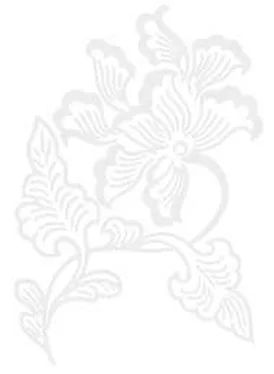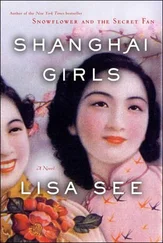Lisa See - Peony in Love
Здесь есть возможность читать онлайн «Lisa See - Peony in Love» весь текст электронной книги совершенно бесплатно (целиком полную версию без сокращений). В некоторых случаях можно слушать аудио, скачать через торрент в формате fb2 и присутствует краткое содержание. Жанр: Старинная литература, на английском языке. Описание произведения, (предисловие) а так же отзывы посетителей доступны на портале библиотеки ЛибКат.
- Название:Peony in Love
- Автор:
- Жанр:
- Год:неизвестен
- ISBN:нет данных
- Рейтинг книги:4 / 5. Голосов: 1
-
Избранное:Добавить в избранное
- Отзывы:
-
Ваша оценка:
- 80
- 1
- 2
- 3
- 4
- 5
Peony in Love: краткое содержание, описание и аннотация
Предлагаем к чтению аннотацию, описание, краткое содержание или предисловие (зависит от того, что написал сам автор книги «Peony in Love»). Если вы не нашли необходимую информацию о книге — напишите в комментариях, мы постараемся отыскать её.
Peony in Love — читать онлайн бесплатно полную книгу (весь текст) целиком
Ниже представлен текст книги, разбитый по страницам. Система сохранения места последней прочитанной страницы, позволяет с удобством читать онлайн бесплатно книгу «Peony in Love», без необходимости каждый раз заново искать на чём Вы остановились. Поставьте закладку, и сможете в любой момент перейти на страницу, на которой закончили чтение.
Интервал:
Закладка:
This lack of sons weighed on everyone. The concubines were supposed to rescue our dying family line, but even though we fed, clothed, and housed them, none of them had birthed a boy either. They may not have been allowed physically to join us for breakfast, but they were with us nonethe-less.
My cousins seemed to have a new attitude toward me. Broom, who’d orchestrated my confinement, used her chopsticks to put a few dumplings on my plate. Lotus poured my tea and handed me her bowl of congee, which she’d flavored with salted fish and scallions. My aunts came by the table, welcomed me back with smiling faces, and urged me to eat. But I didn’t take a single bite. I even ignored the sweet-bean paste dumplings that Shao delivered from my mother’s table.
When the meal ended, we moved to the Lotus-Blooming Hall. Little clusters formed: one group to embroider, another to paint and do calligraphy, yet another to read poetry. The concubines arrived and came to peck at me, present me with treats, and pinch my cheeks to bring in color. Only two of my grandfather’s concubines were still alive, and they were very old. Their face powder accentuated their wrinkles. Their hair ornaments did not make them look younger but only highlighted the white. Their ( 7 5 )
waists were big, but their feet were still as tiny and beautiful as they were on those nights when my grandfather had eased his mind by holding the delicate morsels in his hand.
“You look more like your grandmother every day,” Grandfather’s favorite said.
“You are as kind and good-natured as she was,” the other added.
“Please join us for embroidery,” the favorite went on. “Or choose another activity. It would please us to keep you company in whatever activity you desire. We are a sisterhood in this room, after all. When we were hiding from the Manchus in Yangzhou, your grandmother was very clear on this point.”
“From the afterworld she looks to your future,” the lesser concubine said, in an obsequious tone. “We’ve been making offerings to her on your behalf.”
After so many weeks of solitude, the chatter and competitiveness—all hidden behind the activities of embroidery, calligraphy, and reading poetry—clearly revealed to me the shadow darkness of the women who lived in the Chen Family Villa. I felt tears gather from the exertion of trying to be a good daughter, of listening and protecting myself from their false concern, and of realizing that this was my life.
But I could not fight my mother.
I wanted to submerge myself in my feelings. I wanted to bury myself in thoughts of love. I had no way to get out of my marriage, but maybe I could escape from it in the same way I had here in my natal home, by reading, writing, and imagining. I wasn’t a man and could never compete with the writings of men. I had no desire to write an eight-legged essay, even if I could have taken the imperial exams. But I did have a certain kind of knowledge—all those things I had learned sitting on my father’s lap when I was a small girl and later when he gave me editions of the classics and volumes of poetry to study—that most girls didn’t, and I would use it to save myself. I wouldn’t write poetry about butterflies and flowers. I had to find something that would not only be meaningful to me but would sustain me for the rest of my life.
A thousand years ago, the poet Han Yun wrote, “All things not at peace will cry out.” He compared the human need to express feelings in writing to the natural force that impelled plants to rustle in the wind or metal to ring when struck. With that I realized what I would do. It was something I’d already worked on for years. With the outside world stripped away, I had spent my life looking inward and my emotions were finely tuned. My ( 7 6 )
poet wanted to know my thoughts about the Seven Emotions; now I would find all those places in The Peony Pavilion that illustrated them. I would look inside myself and write not what the critics had observed or what my aunts discussed about these emotions but how I felt them myself.
I would finish my project in time for my marriage, so I could go to Wu Ren’s home with something that would remind me forever of the three nights of love I’d spent with my poet. My project would be my salvation in the coming dark years. I might be locked in my husband’s home, but my mind would travel to the Moon-Viewing Pavilion, where I could meet my poet again and again without interruption or fear of being caught. My poet would never read it, but I could always imagine presenting it to him—me unclothed on his bed and naked in my heart and mind.
I stood up abruptly, scraping my chair against the floor. The sound caused the women and girls to stare at me. I saw the way their hate and jealousy hid behind pretty faces filled with false worry and concern.
“Tong,” my mother said, addressing me by my new name.
My head felt like ants were crawling inside it. I composed my face as best I could.
“Mama, may I go to Baba’s library?”
“He’s not there. He’s gone to the capital.”
The news shocked me. He had not been back to the capital since the Manchus took over.
“Even if he were here,” she went on, “I would say no. He’s a bad influence. He thinks a girl should know about Xiaoqing. Well, look what that kind of lesson has brought you.” She said this in front of every woman who lived in our compound. This is how great her scorn and contempt for me was. “The Cataclysm is over. We have to remember who we are: women who belong in our inner chambers, not wandering in the garden.”
“I only want to look up something,” I said. “Please, Mama, let me go.
I’ll return shortly.”
“I’ll accompany you. Let me hold your arm.”
“Mama, I’m fine. Really. I’ll be right back.”
Nearly everything I said to my mother was a lie, but she let me go anyway.
I left the Lotus-Blooming Hall feeling light-headed and wandered through the corridors until I could step out and into the garden. It was the ninth month. The blossoms had faded, their pitiful petals fallen. The birds had left for warmer climates. With spring feelings so strong in me, it hurt to see this reminder of the frailty of youth, life, and beauty.
( 7 7 )
When I came to the edge of our pond, I sank to my knees so I might see my reflection on the glassy surface. Lovesickness had caused my face to grow thin and pale. My body looked less substantial, as if it could no longer bear the weight of my tunic. My gold bracelets hung loosely on my wrists. Even my jade hairpins seemed too heavy for the lightness of my frame. Would my poet recognize me if he saw me now?
I stood again, lingering for a moment to see my reflection one last time, and then I retraced my steps until I was back in the corridor. I walked to the front gate. Over the last sixteen years I’d come here many times but had never stepped through it or been carried over the threshold. That would happen only on my wedding day. I ran my fingers along its surface.
My father had once explained to me that we had a wind-fire gate. The side that faced the outside world was composed of solid wood. It protected us from all kinds of weather, but it also shielded us from ghosts and bandits by tricking them into believing that nothing of importance or interest resided on our side. The inside of the gate was sheathed in shaved stone to protect us from fire and give us extra fortification against whatever evils might try to penetrate our garden home. Touching those stone sheets was like touching the cold yin of the earth. From there I went to the ancestral hall, made obeisance to my grandmother, lit incense, and begged her to make me strong.
Finally, I went to my father’s library. When I stepped inside I could see that my father had been away for some time. I smelled no tobacco or incense floating on the air. The trays that held his summer ice had been removed, but no braziers had been brought in to heat the room against the autumn chill. More than anything, the energy of his mind was gone not only from this room but—I felt it now—from the compound. He was the most important person in the Chen Family Villa. How had I not noticed his absence, even alone in my room?
Читать дальшеИнтервал:
Закладка:
Похожие книги на «Peony in Love»
Представляем Вашему вниманию похожие книги на «Peony in Love» списком для выбора. Мы отобрали схожую по названию и смыслу литературу в надежде предоставить читателям больше вариантов отыскать новые, интересные, ещё непрочитанные произведения.
Обсуждение, отзывы о книге «Peony in Love» и просто собственные мнения читателей. Оставьте ваши комментарии, напишите, что Вы думаете о произведении, его смысле или главных героях. Укажите что конкретно понравилось, а что нет, и почему Вы так считаете.












